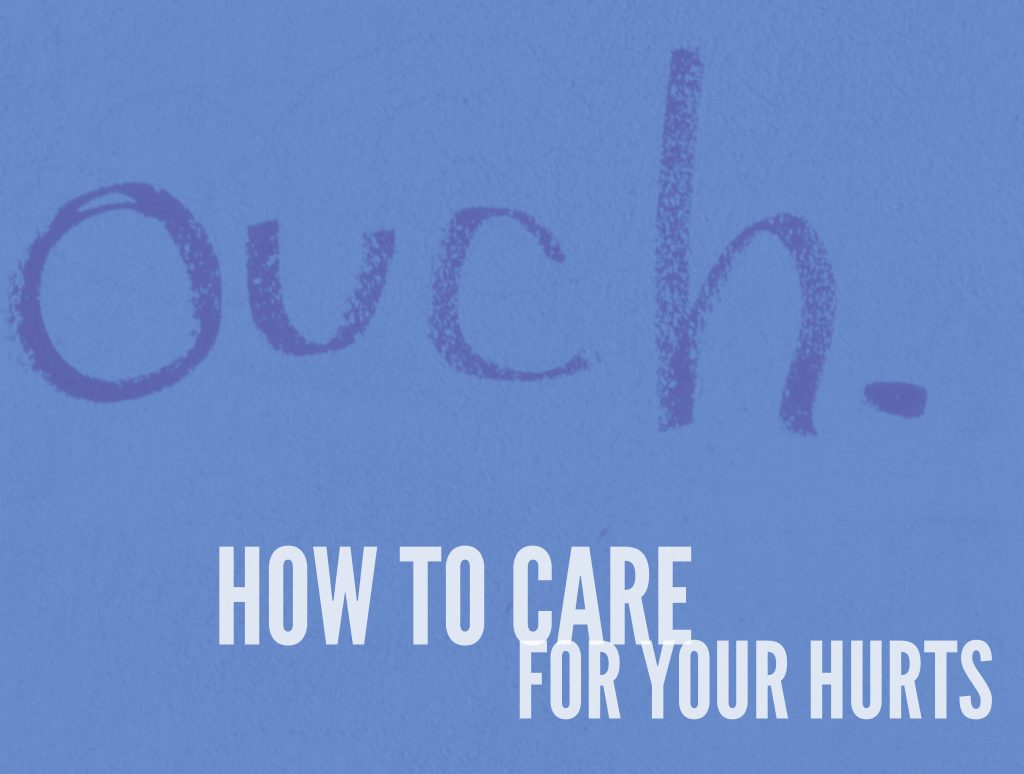This month, Ministry to Parents focuses on Care for the Soul. We asked Jeff and Lora Helton, from Wellspring, to share with you how to care for your wounds and hurts in ministry- whether you serve or work in a healthy or unhealthy culture.
How to Care for Your Wounds and Hurts in Ministry
Written By Jeff & Lora Helton
One of the great tragedies of the church today is that we are afraid to acknowledge that we have hurts. We all have wounds and places of brokenness we work hard to hide, but we are afraid to confess and admit those. As a caregiver or minister, we are eager to counsel others through their hurts. But when it comes to our woundedness, we don’t want to acknowledge it or deal with it.
The problem with this approach is that we deny our humanity. Until we see Jesus face to face, we will struggle in this life. As imperfect people, some places will always need to be redeemed.
Healing needs to occur. That’s how we grow in our relationship with Christ and with others.
When you are struggling with hurts, you must acknowledge and address them. How you deal with pain will impact your marriage, your family, and the way you connect with the church body as a whole. You may even think that little hurts don’t matter, but if you ignore a lot of small hurts, they can grow to create resentment and anger.
Be Honest
The first step in healing your hurts is honesty with yourself about what you are feeling. One of the worst things you can do is ignore the hurt. Don’t deny your pain. Be honest and acknowledge any sadness, anger, or fear. If you don’t care for what’s going on in your own life, it’s going to impact and negate everything else you are trying to do.
Focus on the Truth
When you are hurting, it’s easy to believe the lies—both the ones coming from others and the ones you tell yourself. You must focus on the truth rather than the lies. When in pain, you tell yourself that you don’t matter, you aren’t important, and you have nothing to offer. Those statements are based on lies. God’s Word states that you do matter, you do have a purpose, and you are loved. Focusing on what is true is a vital part of caring for hurts.
Seek after God
As a person in ministry, you know the importance of seeking God during trials. The key is to do it. Spend time with Him in a personal, intimate way. Learn to soak in His presence, understand His care, and feel His love. Allow Him to be an anchor through the waves that come with hurt.
Don’t Walk Alone
Ecclesiastes states that a cord of three strands is not easily broken. However, sometimes three people isn’t enough. My wife is an awesome resource and support for me. However, there have been issues in my life when I needed more. I needed more people to help carry those burdens and walk with me during a time of significant struggle.
In those times, when you’re carrying a heavy load and dealing with hurts, you need to live in community and find accountability with a safe person.
Safe people, generally speaking, are people you have known for some time and who have established a high level of trust with you. You can be confident of their loyalty to you and their commitment to confidentiality. They are not judgmental, and they are not afraid to engage with the truth.
It’s wonderful when you’re in relationship with safe people who can also be your vacation buddies and your child’s regular playdate. But, sometimes you have to pay for safe people. In certain situations where the hurt has been there for a long time, or it feels severe, it may be necessary to meet with a therapist or counselor or life coach. You may need someone who has the training and expertise to say, “Let’s process this place of woundedness and hurt.”
Take Time to Heal
There are certain situations when it’s appropriate, and even advantageous, to take time away from serving to heal and rest. It can be hard to give yourself permission and margin for self-care. Often there is a perceived expectation that you should be able to handle difficult things and be okay. However, that is not true.
Everyone needs time to heal. It can be as simple as a break during which you and your spouse go away to regroup, or it may require a more extended season of rest during which you say no to your previous commitments.
Life is not easy. It is filled with imperfect people and unavoidable hurts. Some hurts are small, and some are soul-crushing. No matter the size, it is critical for your mental and spiritual health—and that of your ministry and family—to deal with them.
Hurts don’t make you less. They make you human. And if you let Him, God will use them to grow you more and more like Him.
A Special Note to Ministers
How you care for wounds and hurts in ministry is in direct correlation to the health of your church or ministry culture.
If you are part of a culture (and there are many like this around the country) where there’s a great sense of health and an awareness and acceptance that nobody’s perfect, you can probably bring your hurt to the attention of your peers. You may be able to share in a staff meeting or gather two to three other leaders together. Share honestly about your struggle and ask for prayer.
“Hey, here’s an area in which I’m struggling. Would you all pray for me? Our marriage is kind of in a hard spot.”
In a healthy culture, those peers and leaders will surround you, encourage you, pray for you, and refrain from passing judgment.
Unfortunately, some people serve in cultures that may not be that healthy. In those situations, it can be dangerous to share hurts. Sadly, those confessions can be turned against you or used to minimize you.
If you serve in an unhealthy culture, you have a greater responsibility to yourself and your family to acknowledge your hurts and find safe relationships.
Jeff Helton has been married to Lora for over thirty-two years and is a dad to four adult children, two daughters-in-law, and Papa to three grandchildren. He served as a pastor for over 25 years. Currently, he is a life coach and consultant who works with individuals, couples, and teams in churches and the business world. You can contact Jeff at www.wellspringtn.com.
Lora Helton is a wife, mom to four children and two daughters-in-law, Nana to three grandchildren, and a life coach. She enjoys coffee, nature, and spending time with women. She desires to encourage women in their parenting and marriage journey as well as discovering who they were created to be. You can contact Lora at www.wellspringtn.com.
For more posts on Care for the Soul, check out:
How to Set Boundaries in Ministry
6 Ways to Care for Yourself While Caring For Others
Connect with your parents in less than five minutes!
Download & send these digital resources to your parents.
A PRAYER GUIDE FOR YOUR FAMILIES & 2 PARENT VIDEOS.


